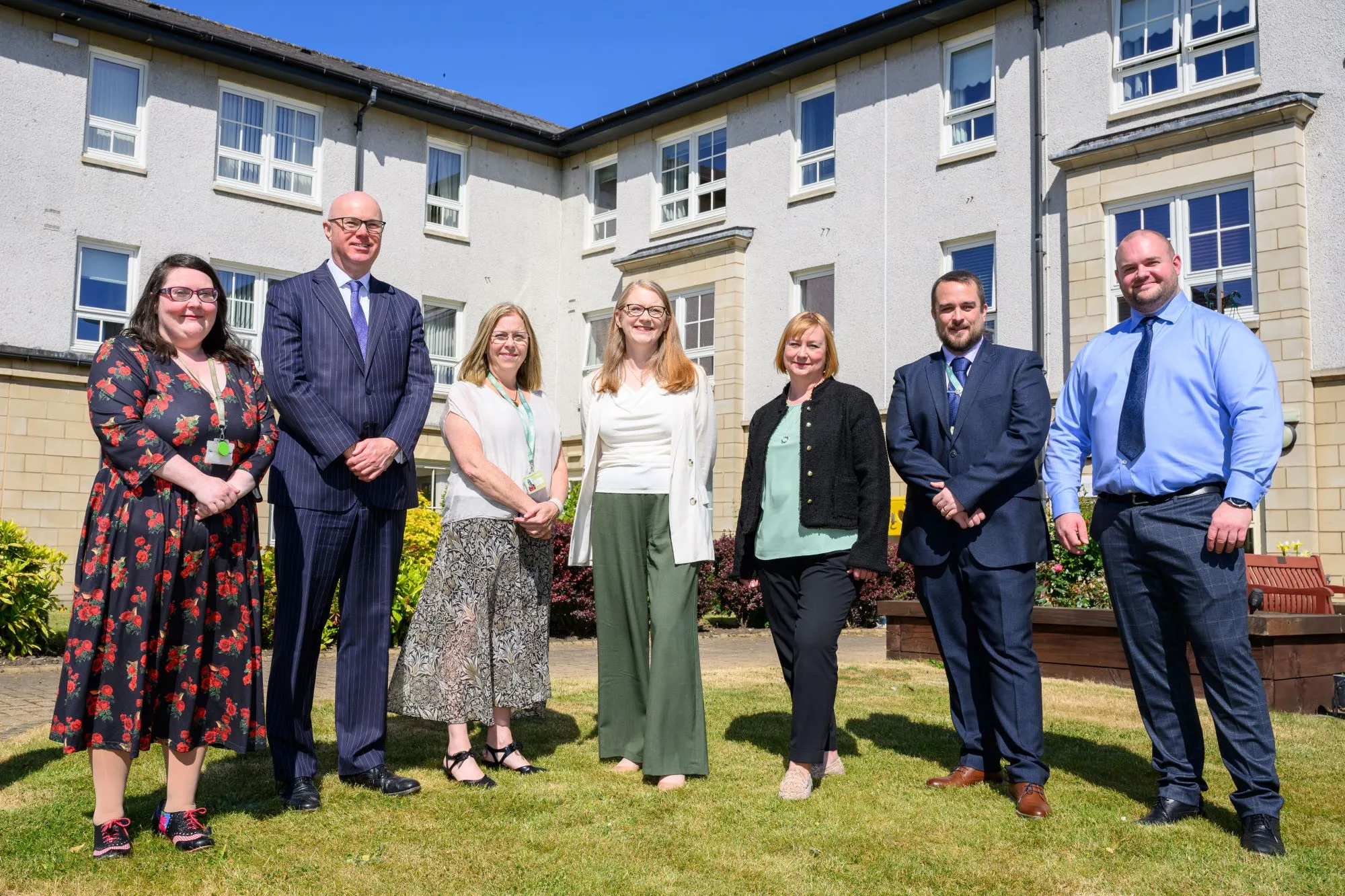Minister sees preventative housing tech in action at Linlithgow development
Cabinet Secretary praises cost-effective approach to improving health and independence.
Cabinet Secretary praises cost-effective approach to improving health and independence.

Scotland's Cabinet Secretary for Social Justice has praised the growing role of housing and technology in delivering better outcomes for older people while easing pressure on the NHS and social care services.
Shirley-Anne Somerville MSP visited the Bield Tech Hub at West Port in Linlithgow - Scotland’s only demonstration site for the UK-wide TAPPI (Technology for our Ageing Population: Panel for Innovation) project. The Bield Tech Hub showcases assistive technologies and digitally enabled housing solutions designed to help older people stay safe, independent, and well at home for longer.
During the visit, the Cabinet Secretary saw first-hand how Bield is embedding technology into its Independent Living Approach - demonstrating a sustainable, preventative model that helps reduce hospital admissions, prevent crisis interventions, and lower long-term care costs.
Debbie Collins, Chief Executive of Bield, said: “This was a welcome opportunity to show how investing in the right housing and technology is not only improving lives but also delivering public value.
“Our work supports older people to manage their health, stay connected, and live independently - reducing reliance on formal care and helping to avoid preventable hospital stays. These are the types of solutions that must be scaled if we are serious about creating a sustainable health and care system.”
The Cabinet Secretary was shown a range of pioneering tools, including Anthropos, a predictive analytics system that monitors routines and flags early signs of decline; Vayyar, a 4D radar fall-detection sensor requiring no wearables; and Sentai, a voice-enabled companion that supports innovative digital care, enhances daily life, keeps individuals connected and promotes a healthier, more independent lifestyle.
Each room in the Hub is fitted with assistive equipment to allow tenants, professionals and visitors to experience how digital solutions can be embedded into real-life home settings.
Ms Somerville said: “It was inspiring to visit the West Port development and see how technology is being used in such a thoughtful and practical way.
“Scotland faces significant challenges as our population ages, and it is preventative, people-focused approaches like this that will help us deliver better outcomes while making best use of public resources.”
Bield’s work has been supported by The Dunhill Medical Trust and delivered in partnership with Housing LIN and the TEC Services Association (TSA). The organisation has gained national recognition for its proactive, technology-enabled approach, with its Inspire Phase 2 programme winning the 2023 Transformation Award at the ITEC Awards for reducing emergency callouts through enhanced telecare.
Bield’s wider Independent Living Approach combines accessible housing, personalised support, and community engagement - meeting the diverse needs of older people while helping them remain in their homes and communities.
Debbie Collins added: "Access to preventative support is what helps people thrive. We believe housing must be seen as part of the health and care infrastructure - and that continued investment in digital solutions and accessible homes will improve lives and save money long-term.”
With over 170 developments across Scotland and more than 5,000 tenants, Bield is also making strides on environmental sustainability. Upgrades like solar panels and LED lighting has helped deliver a 5.8% reduction in energy usage in the past year.
As demand continues to grow, Bield is calling for further strategic investment in housing-based solutions that support independence, promote dignity, and protect health and care services from avoidable strain.